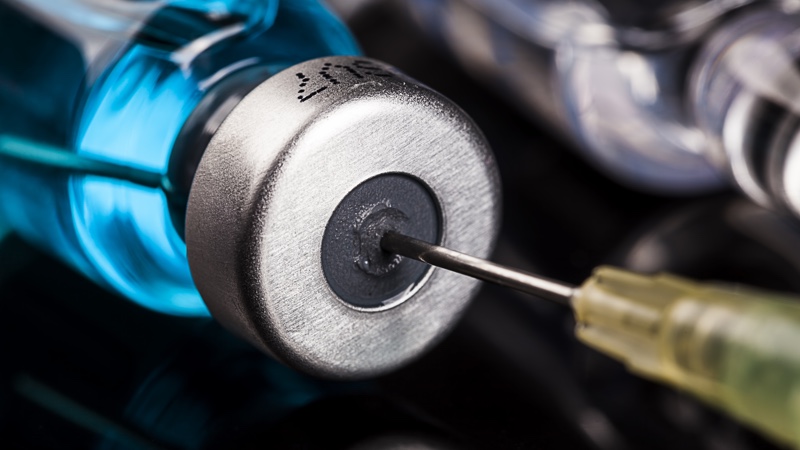Meet the new CEO of Early Disease Detection Research Project UK

The Early Disease Detection Research Project UK is funded by the £79 million Accelerating Detection of Disease Challenge, part of UK Research and Innovation’s £986 million Industrial Strategy Challenge Fund.
The Early Disease Detection Research Project UK (EDDRP UK) has appointed Andrew Roddam as Chief Executive Officer. As EDDRP UK CEO, Andrew will be responsible for delivering a pioneering UK Research and Innovation-funded programme that aims to discover new ways to detect and prevent the development of diseases. Andrew brings over 20 years of experience in epidemiology and large-scale population health studies from both academic and pharmaceutical industry settings and was most recently Vice President Data Strategy at GSK.
Andrew Roddam has written the following blog to introduce himself as the CEO of EDDRP UK:
It is a great honour that I have been asked to take on the role as CEO of Early Disease Detection Research Project UK (EDDRP UK) – I still remember the excitement I had the first time I heard about this project, not ever thinking that I would have the opportunity to lead it.
For me, this is a once in a career opportunity and I can’t wait to get going and deliver what I believe will be truly transformative in the world of early diagnosis and detection of chronic disease. However, this is an incredibly challenging time for us all as we face a global pandemic which is affecting every aspect of our daily lives. Clearly the first few months in the new role are going to be even more dynamic than I anticipated as we navigate these very difficult and rapidly changing times.
This role and project builds on my career starting with my academic epidemiology background at the University of Oxford and then over the past 11 years working in the pharmaceutical industry leading global epidemiology and real world evidence teams.
I am very fortunate that I’m not starting with a completely blank sheet of paper. Thanks to the stellar leadership of Sir John Bell along with the amazing amount of work Fiona Reddington has done during her secondment from Cancer Research UK, we can get off to a flying start.
It goes without saying that in addition to John and Fiona, there has been considerable input and work from many in the wider academic community as well as from the Office for Life Sciences and UK Research and Innovation teams. I’m personally grateful to everyone who has helped us on things such as the protocol, considerations of mechanisms to recruit the participants, the ethics and governance framework, and the various advisory groups.
However, let’s not underestimate what needs to be done – the vision of the government’s Accelerating Detection of Disease Challenge is to deliver a world-leading cohort of up to 5 million participants by 2024 which will support research intended to improve the early detection, risk stratification, and early intervention of chronic diseases in individuals, before symptoms present. The cohort aims to collect biological (blood) samples and health related data on all 5 million participants, with plans to collect repeat samples from a subset.
A key difference between this cohort compared to many others is the intent to consent for recontact so that the cohort can be repeatedly used in the future to run a whole range of future studies and/or interventions. This requires us to ensure that whatever we do has a mechanism to ensure continued engagement with the study long beyond the point of recruitment.
The other leading difference is the goal to feed back results to participants – this is very easy to say, but has significant ethical and practical challenges that we will have to address. The ethics and governance advisory group have started those conversations but it will be some time before we get to the details of the approach that the cohort will adopt.
In the near term, my focus is on a few key activities. The obvious most important one is to build out the team – clearly, we will never deliver this vision without recruiting a strong team. We are already making good progress here with some key roles which I hope to be able to announce soon, and I’m delighted that Jo Roach has joined us to lead our digital strategy in an interim capacity.
As the team come on board, we need to turn attention to further developing three key themes:
1. Communications and engagement
2. Scientific, with specific focus on pilot activities including the ethics, governance and consents
3. Digital and tech
Although these activities are clearly distinct, there is a strong degree of inter-dependence between them, that is so critical to get right. However, in order for us to launch pilots in the second half of this year, we must get everything we need set up for those to be successful. My plan will be to take a very agile approach, developing our product and iterating over time as we learn and build more leading us to the launch of the main study in 2021.
In the time before I formally take up the role I’ve been taking the opportunity to meet many of the people who have been involved in the project to date, to both help get me up to speed on where we are, but also so that I can really hit the ground running when I start. As I said in my opening, this is such a huge opportunity, both for myself and for the country, that I really cannot wait to get going and partnering with many of you to ensure that we successfully deliver on this challenge.
Andrew Roddam
Incoming CEO, Early Disease Detection Research Project UK
For more information about the Accelerating Detection of Disease Challenge, which EDDRPUK will deliver, click here.

